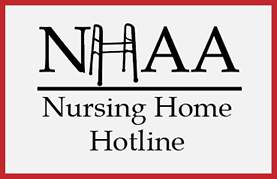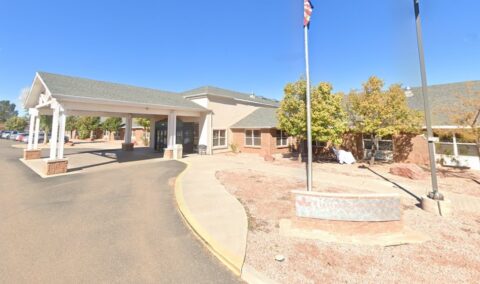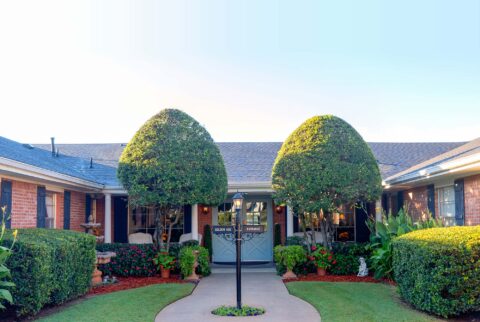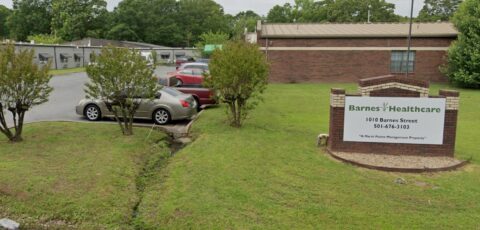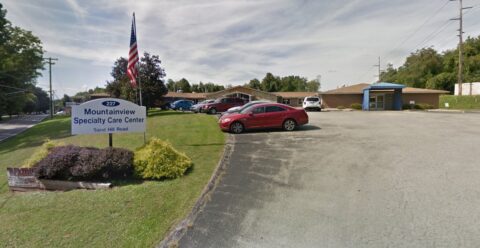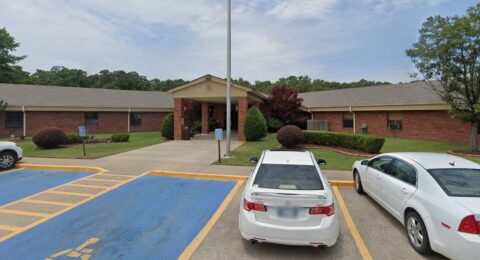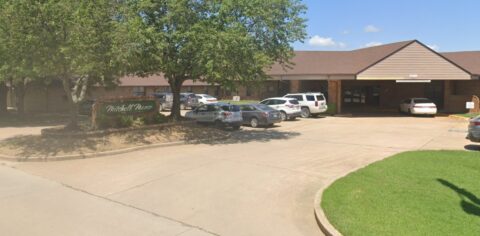In The News:
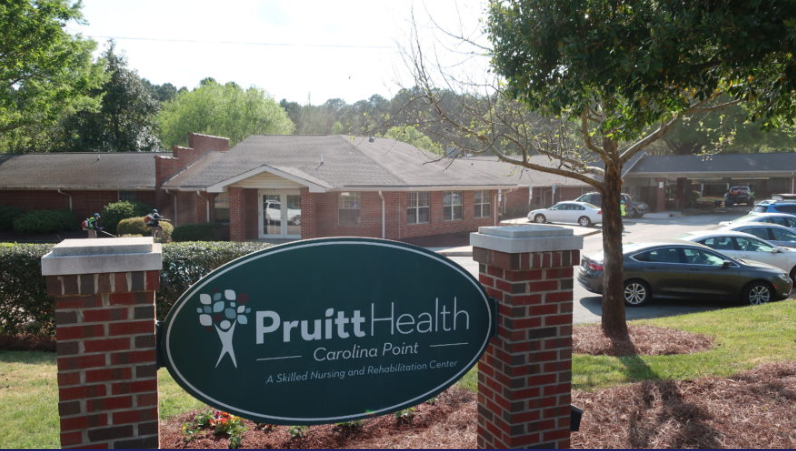
By Thomas Goldsmith
Many of the North Carolina nursing homes known to have had COVID-19 outbreaks have something else in common: they apparently don’t have enough staff to do the necessary work.
A new NC Health News analysis of federal data found histories of short staffing at more than three-quarters of the 19 North Carolina nursing homes identified in public records and/or media accounts as having COVID-19 outbreaks.
In recent days, a dominant image of the national pandemic has become that of already vulnerable older people contracting the disease in nursing homes, some of them the sites of dozens of deaths. Asked about the relationship between insufficient employee presence and COVID outbreaks, both state and federal regulators said April 16 that moves are underway that will lead to more attention and resources devoted to staffing up.
“Publicly reporting the data and ratings on staffing levels can serve as an incentive for providers to improve their performance, and we will continue to monitor the reporting and its relationship to facility outcomes,” a spokesperson for the federal Centers for Medicare and Medicaid Services, which regulates nursing homes, said via email.
“If state surveyors identify harm or potential harm as a result of insufficient staffing, they should cite it as noncompliance. If the noncompliance meets CMS criteria for enforcement remedies, the facility will be subject to sanctions and could potentially be terminated from the Medicare program.”
State Department of Health and Human Services employees carry out surveys of North Carolina nursing homes, but CMS creates ratings for the facilities and oversees their licenses based on those DHHS inspections. By law, nursing homes must have a registered nurse on location seven days a week, eight consecutive hours a day. Facilities aren’t required to employ specific numbers of direct-care staff but are bound by a 1987 federal statute to have enough workers on hand to reach or keep up the well-being of each resident in physical, mental or psychosocial terms.
“We are not aware of studies that specifically link staffing levels to likelihood of outbreak,” Kelly Haight Connor, a spokeswoman for the state Department of Health and Human Services, said in an email. ”The data on disease transmission and factors that influence that is continuously emerging.”
A temporary increase
As of Sunday morning, the state Department of Health and Human Services says there have been outbreaks in 37 North Carolina nursing homes, resulting in 47 deaths, but has refused to reveal their names. Of the 19 in the NC Health News analysis based on numbers updated March 31, 13 posted “below average” ratings for staffing on a 5-point scale and two were rated “much below average.”
That means 15 were below average or lower. Only four of the homes with outbreaks met the average standard, and none reached the two possible higher levels.
Haight said the Medicaid division of DHHS has put into effect a temporary increase of payment rates for providers including nursing homes and assisted living facilities to support the centers in looking after Medicaid recipients “at high risk of serious illness from COVID-19.” A DHHS announcement of an additional payment for each resident diagnosed with COVID-19 mentions staffing as one of its purposes along with increased screening, improved cleaning regimens, more cleaning supplies and personal protective equipment or PPE.
The likely effects of understaffing have been impressed upon any nursing home visitor who has met with a relative who was soaked in urine or vainly pushed a call button for help.
“Anytime you’re working a business that’s short-staffed, you’re being asked to do more than it’s safe for you to do,” said Ana Pardo, policy advocate for the Workers’ Rights Project at the progressive North Carolina Justice Center. ”Any of us, the more stressed we are, the worse job we do.”
Since 2018, federal staffing records have been based on payroll data, not the nursing home’s self-reported figures, as they had been previously.
Notably, those surveys performed by the CMS detail staffing levels in the state before the current pandemic struck, according to the agency. The COVID-19 crisis has thinned those ranks even more, based on observer accounts and a large number of commercial solicitations for more workers, creating a demand for direct-care workers, and making it even tougher to stem the seemingly daily outbreaks and deaths in nursing homes. These developments are occurring in facilities that by definition are filled with people highly susceptible to the virus.
Is it some third factor?
Advocates for frontline workers say nursing aides are in particular jeopardy if infected with COVID-19, in part because they were not included in the provision of the federal CARES Act that provides paid sick time for many employees.
“They truly serve as a lifeline for older adults and people with disabilities across long-term care settings, but also in other settings in communities,” said Kezia Scales, of Durham, director of research at PHI, a progressive national nonprofit that advocates for better direct care jobs as a means to improving long-term care.
”They have a great responsibility right now of trying to keep those residents safe and free from infection as possible, but then also trying to help manage their treatment in place if they do become infected.”
Leah Byers, a policy analyst at the conservative Civitas Foundation, a Raleigh think tank, said the effects of apparently low facility staffing need more study.
“The causation is the big question mark,“ Byers said. “Are they understaffed, do they not have the PPE, or is it some third factor? If the understaffing is the problem, the industry should respond to that.“
Low staffing at deadly Va., Brooklyn centers
The problem of a worker shortage in long-term care during COVID-19 appears so overwhelming that it’s rarely addressed as a whole. PPE, yes. Respirators, yes. Even toilet paper.
But short-staffing tends to get mentioned only in passing, as it was in a news conference with Dr. James Wright, medical director at Canterbury Rehabilitation and Healthcare Center, the Richmond, Va., nursing home where 45 people have died from COVID-19.
“If I were to do something different, I would have a nursing home that had enough staff around-the-clock, around all the time,” Wright said, according to the Washington Post.
His response placed high levels of people on the job as a distant goal, part of what he called ”a nursing home funded by a society that puts more emphasis on treating our elders the way they should be treated.”
Like most of the North Carolina skilled nursing facilities with known pandemic outbreaks, Canterbury posted a 2, a below-average score for staffing as seen in the CMS database. So did Cobble Hill Health Center, the Brooklyn, N.Y., nursing home where 55 of 300 residents died during an outbreak.
Time is tight
Federal records, again measuring pre-COVID-19 levels, show that North Carolina’s 428 skilled nursing facilities offered 3.94 hours of staff time per resident per day compared to a national average of 7.53 hours. Those figures include time spent by nurse aides or CNAs, licensed practical nurses and registered nurses.
According to Moore County Health Department documents, 45 residents of Pinehurst Health and Rehabilitation Center have contracted COVID-19. The center appeared nearly deserted when a reporter stopped by last week, but a Moore County Health Department spokesperson said Thursday that it is fully staffed. The facility has the lowest overall rating, a 1 for being far below average, and a 2 on staffing.
Paul Babinski, president of facility owners Liberty Healthcare and Rehabilitation Services, said in a statement that since the outbreak, the company has strictly cut back on visitation; conducts screenings when employees, vendors and medical workers arrive; repeatedly checks residents for evidence of new respiratory disease and fever; and is reeducating employees on infection guidelines from the Centers for Disease Control and Prevention.
Self-identified Pinehurst Health and Rehabilitation employees have posted their concerns in anonymous indeed.com reviews, perhaps not the most reliable sources, and more recently have brought up their concerns with their local paper. But just like the CMS ratings, these comments repeatedly bring up a lack of dependable numbers of nurses and aides working with residents.
“Short staffed every shift and they don’t care at all,“ reads one.
Liberty Healthcare also owns three other nursing homes marked by COVID-19 outbreaks and below-average staffing levels: Liberty Commons of Whiteville, Pavilion Health Center at Brightmore and Louisburg Nursing Home.
A review of the company’s “careers” website on Sunday shows job openings for five certified nursing assistants at the Pinehurst Health and Rehabilitation, but none at the other three facilities.
Why staffing matters
Everyday experience would seem to indicate that more qualified hands will do a better job in health care, up to a point. However, it’s not possible to show, in real time, that North Carolina nursing homes that experienced COVID-19 outbreaks had them because they were short-staffed. Correlation is not causation, we’re often told.
But decades of academic studies have shown that residents of short-staffed skilled nursing facilities do worse than others.
“It is likely that adequate staffing levels must be addressed before improvements can be made in other factors such as turnover, management, and competency,“ said the authors of a 2016 paper in the journal Health Services Insights.
There’s been no time yet for researchers to conduct in-depth work on the spread of COVID-19, but a paper last year found that more robust staffing could help cut back cases of influenza and pneumonia, diseases with a process similar to that of the novel coronavirus.
“Hiring more registered nurses and licensed independent practitioners, increasing staffing hours, and higher-quality care practices may be modifiable means of reducing pneumonia and influenza in long-term care facilities,“ the authors wrote in Open Forum Infectious Diseases.
Direct-care workers needed
There’s even a study that shows that high levels of absenteeism by nurse aides lead to lower-quality care, measured by physical restraint use, catheter use, pain management, and the development of pressure sores. Workers who don’t, or can’t, show up for work have become an increasing factor during the pandemic.
“It’s hard to quantify those shortages but what we know is you have employers who are already struggling,“ said Scales, the PHI researcher. “Now, as huge numbers of workers are having to quarantine, or are not able to come to work because they have to care for their children at home, there’s not anybody else to step in and take those positions.”
The longstanding negatives about direct-care work at nursing homes remain. The pay is generally low — think McDonald’s — and the work can be grueling and, in the context of the pandemic, potentially impoverishing and life-threatening. The Rev. William Barber II, of Goldsboro, leader of the national Poor People’s Campaign, sees the pandemic from the viewpoint of a longtime advocate for an increased minimum wage and better conditions for frontline workers.
“Pandemics spread through the fissures of our society,” Barber said in a phone interview. “America has all of these open wounds that have been created by years of inequities.”
According to a classified ad for a certified nursing assistant job, “The physical activities of this position involve fingering, grasping, kneeling, lifting, pulling, pushing, reaching, standing and stooping. This position may require occasional lifting, pushing or pulling up to 50 lbs. and regular lifting, pushing or pulling of 25 lbs. Lifting over 50 pounds would require assistance from another staff member.”
Show them the money
Medicaid, the federal- and state-financed health insurance program for low-income people, pays for nearly two-thirds of nursing home care in North Carolina. The rest is picked up by Medicare and by private pay that can exhaust residents’ life savings. Beefing up care with more, better-paid employees would likely have to come from a boost to the state’s already imposing Medicaid spending, a figure that the legislature has sought to reduce over the past decade.
State Rep. David Lewis (R-Dunn), a leading budget writer, gave a general picture of what lies ahead for health care when the legislature returns to Raleigh this year.
“Our doctors, nurses, and CNAs are the frontline defense of our health care system, working countless hours to serve our state’s most vulnerable citizens,” Lewis said in an emailed response. ”While it is too early to say what will be included in future budget discussions, the House Select Committee on COVID-19 is faithfully continuing its work to develop a comprehensive response package, and we will continue to honor health care professionals as they are putting their lives on hold, responding to the call.”
Mitch Kokai, senior political analyst at the conservative John Locke Foundation, said legislative attention to nursing home staffing will come along with many other priorities, some related to COVID-19 and some in other areas.
A vocal lobby?
“I think that the coronavirus is going to make people reassess many different aspects of your lives including the regulations and standards in health care,” Kokai said on the phone.
“I would not be surprised if the legislature winds up looking at things like staffing in nursing homes — does there need to be some sort of tweak?” he continued. “My guess is there is going to be a vocal lobby saying, ‘Yes, we need more staffing,’ and another saying, ‘All of this sounds good; how are we going to pay for it now that our economy has taken this big hit?’”
Civil rights leader Barber said workers in the field will require more tangible benefits as the crisis continues, referencing applause offered up in some cities to health professionals as they leave their workplaces.
“We often say that these essential workers are the soul of America,” he said. “We say go out here and risk your lives and we will just give you a handclap and a medal.”
Your Experience Matters
...and we want to hear it.
NHAA is here to assist families, residents, and the community by sounding the alarm on issues like those found above. This nursing home and many others across the country are cited for abuse and neglect.
If you have or had a loved one living in this nursing home or any other nursing home where you suspect any form of abuse or neglect, contact us immediately.
We have helped many already and we can help you and your loved one as well by filing a state complaint, hiring a specialized nursing home attorney or helping you find a more suitable location for your loved one.
You can make a difference, even if your loved one has already passed away.
Please give us a call at 1-800-645-5262 or fill out our form detailing your experience.
Personal Note from NHA-Advocates
NHAA shares with all the families of loved ones who are confined to nursing homes the pain and anguish of putting them in the care of someone else. We expect our loved ones to be treated with dignity and honor in the homes we place them. We cannot emphasize enough to family members of nursing home residents; frequent visits are essential to our loved ones’ well-being and safety.
If you are struggling and upset, click here to understand your options, or contact us through our contact form or call our toll free hot line number: 1-800-645-5262.
